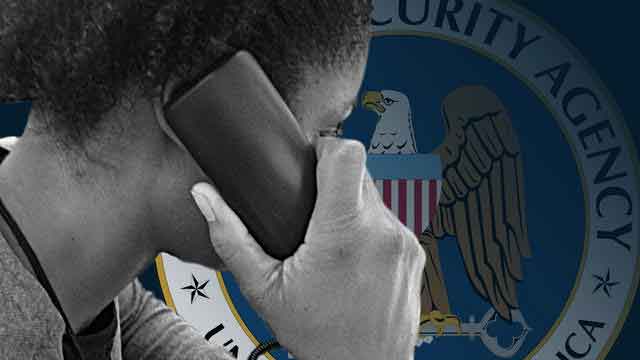New details on NSA surveillance reach
Lt. Col. Tony Shaffer and Alex McGeorge on the agency’s broader activities monitoring Americans
The National Security Agency acknowledged Friday that some of its analysts knowingly violated the agency’s rules, after the incidents were included in an inspector general report.
"Over the past decade, very rare instances of willful violations of NSA’s authorities have been found, but none under FISA or the Patriot Act,” the NSA said in a statement.
“NSA takes very seriously allegations of misconduct, and cooperates fully with any investigations – responding as appropriate.
“NSA has zero tolerance for willful violations of the agency’s authorities,” the statement said.
Bloomberg News reported earlier that a new report by the agency’s inspector general found several cases over the past decade where people deliberately violated internal rules when it came to conducting surveillance.
It’s the latest in a stream of black eyes for the agency. Two days earlier, the agency acknowledged that it was rebuked by the surveillance court in 2011 for collecting thousands of emails and other online details from Americans with no ties to terrorism.
On Friday, an independent oversight board reviewing secret government surveillance programs also warned the Obama administration that national security agencies' rules governing surveillance are outdated and need to be revised to reflect rapid advances in technology.
The chairman of the Privacy and Civil Liberties Board, David Medine, wrote to Attorney General Eric Holder and Director of National Intelligence James Clapper, urging that rules governing collection and retention of data about U.S. citizens be updated to "appropriately capture both the evolution of technology and the roles and capabilities of the intelligence community since 9/11."
Medine said Friday that his letter, sent Thursday, was an attempt to prod national security officials into taking "a fresh look" at surveillance protocols. The National Security Agency and other departments have based their surveillance activities on a 1981 executive order that still governs much of the nation's intelligence collections.
Medine said that the NSA, which oversees most surveillance programs, has not updated its guidelines since 1993. The FBI updated its own guidelines in 2008, Medine said, while the National Counterterrorism Center revised its surveillance rules in 2012.
The government's ability to collect cell phone numbers and other telephone data under Section 215 of the USA Patriot Act law is also governed by Executive Order 12333, signed by President Ronald Reagan in 1981, Medine said.
Reagan's order established the framework for the collection, retention and sharing of intelligence, and national security agencies are required to submit guidelines based on the order to the attorney general for approval.
The fact that the government's massive telephone surveillance program is based on the 1981 order "makes it even more relevant that the guidelines be kept up to date," Medine said.
The NSA's public disclosure earlier this week of secret court rulings showing that some data has been inadvertently collected from Americans has raised concerns about the amount of time that such materials are retained in government inventories.
National security officials said earlier this week that they had initially kept such records as long as five years but whittled that retention down to two years after the chief judge of the secret Foreign Intelligence Surveillance court declared parts of the surveillance operation unconstitutional in 2012. The NSA altered its collection processes and the judge then allowed the operation to continue.
Medine said he and other members of the oversight board decided to write to Holder and Clapper after they learned that some government agencies had not updated their surveillance guidelines in three decades.
"In many cases, these guidelines don't take into account major changes in technology such as text messaging and the ability to share large computer databases almost instantaneously," Medine said Friday. "Without drawing conclusions, we're saying these guidelines need to be revisited."
The Associated Press contributed to this report.













































